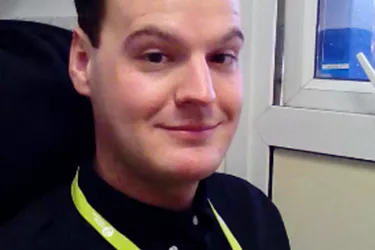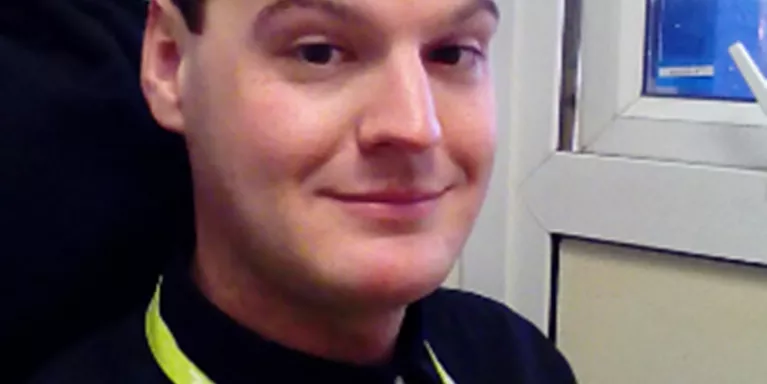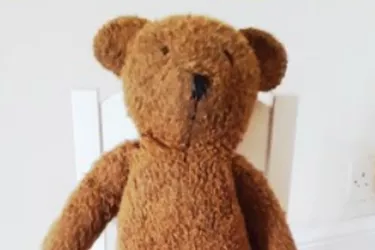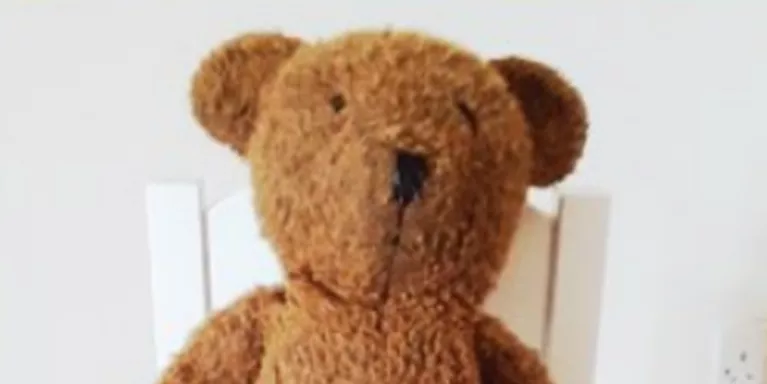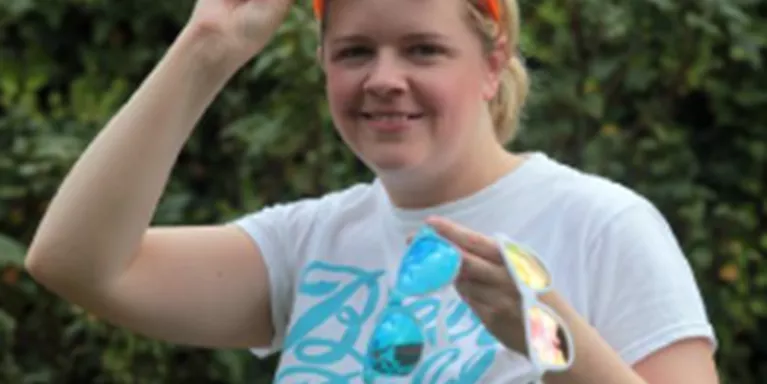I thought anxiety would be my biggest challenge... I was wrong
Pete's talks about living with anxiety and bipolar, his journey through treatment – and how his mental health problems affected those close to him.
I've always been proud to be open about my 'brain demons' – though I have found that as time goes on fewer people seem to be able to understand. And there was a long time where I thought my anxiety would be the biggest challenge I'd face within the walls of my skull... but a couple of years or so ago I had to deal with even more on top of that. My darkness as I call it.
I noticed some odd moods and behaviours in myself. After some time I asked the doctor to refer me to secondary/psychiatric care for a check up. I was no stranger to the process after my 10+ years of anxiety, so I understood that it might not be a quick fix, but it felt important. As it turned out, they thought it might be cyclothymia. It was hard to pin down, because I can change from one extreme to another many times in a day when it's at its worst. The moment you ask me what I'm feeling might be very different to what I'd say an hour later.
"I felt fine. I always feel fine when I'm up. That's a part of the problem."
Skip forward a year or more, and I've changed jobs, lost my longest and most precious relationship, and moved house 11 miles, to another county – which meant my psychiatric care almost went back to square one.
My behaviour felt like it was getting worse. I had a constant need to distract myself with stupid things. One time I was going to have a tattoo done after the pub closed by a guy who was so drunk in his chair I couldn't even wake him up. All so I could focus on something that wasn't myself.
"Spending days in bed and ignoring bills and work and friends is a much more obvious way to measure that I'm ill."
Or the time I woke up in a period of mild mania at 4am, showered, dressed well (fake it until you make it, right?), went to the local store and bought two bunches of beautiful sunflowers.
I drove to my dad's, knowing he was awake that early, and gave a bunch to him, then drove to my mum's and did the same. When they both spoke later to my sister and realised I'd given them each flowers, they thought I might have been saying some sort of final goodbye.
The truth couldn't have been more different, but it hit home to me how worrying my manic actions can seem to people. I felt fine. I always feel fine when I'm up. That's a part of the problem.
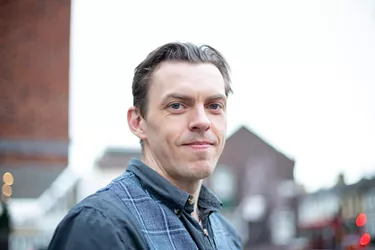
Spending days in bed and ignoring bills and work and friends is a much more obvious way to measure that I'm ill, but I'm just as Ill when I'm manic. It just isn't as easy to tell.
"...you need to feel ownership of the choices that are made..."
After re-entering the care system, they now think it might be bipolar type 2, not uncommon I hear for cyclothymia to get slightly worse over time.
I asked for a second opinion, this time, not because I disagreed with the diagnosis, but because I wanted to feel invested in the treatment plan, which otherwise I'd have no hope of sticking to. I think it's important to feel a sense of self-responsibility for helping yourself get well, and you need to feel ownership of the choices that are made with you to give it any chance of working.
I think a real turning point for knowing I needed a bit of help was the night I couldn't sleep because I was crying uncontrollably holding my 33 year-old teddy bear, apologising for ignoring him while I grew up and asking for his protection again as a fully-grown man. You'll be pleased to hear he now sits proudly by my table and not on top of a wardrobe.
Also being picked up and dusted off by friends has been a real aid. I was once taken for a night out by a very dear friend, who knew I was broken before I was. On the journey I had such a sudden and violent feeling panic attack that I wanted to jump out of the car at 70mph. She kept me safe, sane and distracted.
The next day involved an ambulance, morphine and a realisation that I was stressed and unwell. She saw it before I even knew it was going to happen, and I owe her a debt for looking after me. I'll never forget the sense of being unable to breathe, or see straight – and the desire to run and run and run. Or the sense of safety that had been given to me by someone looking out for me.
For the present, I am happy to accept treatment. I'm due to try an antipsychotic (which sounds scary, but really it just stabilises mood), and hope it's a good fit for me. I hope that it gives me the ability to feel less rapidly socially disconnected, that it helps me get back into exercise (if I hadn't have given up on kickboxing I'd have my black belt already) and that it helps those around me to worry less in the process.
"The difficult part is not giving up on or rejecting the help on offer."
There is imperfection on my behalf, too. My alcohol intake is higher than is considered healthy, I did abuse Valium very heavily for some time, and a lot of my behaviour tends towards self-harm in the sense of actions which make my situation or feelings worse. It certainly contributed in part to the loss of love, which I regret still. I'm hoping with treatment I can stabilise that. But I guess that's bipolar by definition; I'm sometimes the cart and sometimes the horse.
For me, the easy part is finding comfort in my friends, for which I am fortunate. The difficult part is not giving up on or rejecting the help on offer. I try to keep invested in my interests (ironically, I like to write comedy), and I try to keep myself aware of what treatment is being proposed so that I can feel that I agree with it.

Information and support
When you’re living with a mental health problem, or supporting someone who is, having access to the right information - about a condition, treatment options, or practical issues - is vital. Visit our information pages to find out more.
Share your story with others
Blogs and stories can show that people with mental health problems are cared about, understood and listened to. We can use it to challenge the status quo and change attitudes.










